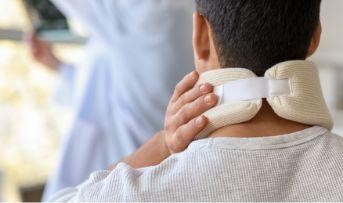General Insurance Blogs, Articles & Updates by - Magma HDI
Have us call you
- RENEW YOUR POLICY
- BUY NEW POLICY

Are you a woman traveller? Here are a few packing tips for your next road trip
Road trips are one of the best ways to rewind after a hectic work schedule. With the constant work-related stress of life, it's imperative to get out of your house once in a while to gain a fresh mindset and increase one's productivity. For women especially, such trips at least once a year are vital to set free and get rewarded for all the hard work. But whenever travel and women come together, emotions go out of bound. From planning the itinerary to packing up stuff, the excitement of the trip can be felt way before its commencement. However, packing can be quite a herculean task in itself.
Deciding which items are essential during a road trip can be confusing. Following are a few packing tips that can be a saviour for women travelling solo or in a group.
1. Luggage:
Handbags are a woman's best friend on a road trip. Lugging around your suitcase on a road trip does not sound ideal for anyone, especially on road trips where you're constantly on the move.
The primary concern with a handbag full of stuff is that they take a toll on your shoulder and hands, which is easily avoidable if you take a backpack that fits your body correctly. This helps the weight to get evenly distributed across your back.
2. Clothing:
It is recommended to bring as few clothes as possible without running out of options of clothing to wear. Select the clothes in such a way that you can mix and match them to make different combinations.
It's always advisable to bring a higher number of undergarments, though, as there might not be a lot of opportunities to clean clothes along the way.
3. Toiletries:
Bring along your toiletries in a small, travel-friendly pack and keep it in an accessible place so that it is not a hassle every time you stop at a hotel for a night's stay.
Most hotels provide bare essentials, but it's always best to carry your own. Bring along minimal makeup for the trip in sample-sized containers to avoid it taking too much space in your luggage.
4. Entertainment:
Road trips can get a little boring at times, with endless roads to travel before reaching the destination. When looking out the window to see the scenery becomes too monotonous, you need a good book to read to pass the time.
So, get that book you meant to read for the longest time along with you in your backpack. If you're travelling with friends or family and looking for a group activity, blast your favourite playlist in the speakers to make a memorable ambiance in the car!
5. Safety products:
As a woman traveller, the top priority is safety. It can be unsafe for lone female travellers to travel on deserted roads to unknown places, especially at night. But that's no reason to stay holed up in your house all year. Getting a lock for all your belongings is essential to prevent them from getting stolen.
Also, for your personal safety, get a personal alarm that rings loudly if you press it. This is a better alternative to pepper spray as it is legal in all countries and is small and easy to carry around. Also, check up on your private car insurance India to have a backup in case your car breaks down in the middle of the trip.
Road trips can be an exhilarating experience for those who want to rejuvenate themselves after monotonous weeks of work. You can make packing less daunting and more enjoyable by bringing the above tips into practice. If you are travelling solo, then get your car serviced properly before setting off on the trip. Also, check the crucial documents like your driving licence, car's PUC, and insurance papers. Be up to date with your private car insurance India to stay stress-free during the trip. Happy travels!
Click HERE to know more about private car insurance India.
Disclaimer: The information provided above is for illustrative purposes only. To get more details, please refer to policy wordings and prospectus before purchasing a policy.

Here are a few basic hand gestures or signals commonly used by bikers
One adorable aspect of motorbikes is the sense of excitement that quickly emerges once you start riding. By sharing this passion for bikes, scooters, or both, you may instantly connect with other riders you've never met before from all walks of life.
Riding with a group of passionate bikers is a mesmerising experience, and it never fails to give you the kick you always expect from touring in a group. Staying connected and ensuring clear communication while riding is crucial to keep the entire group organised with proper coordination. Well, this can be achieved by a few basic hand gestures and signals that riders use to communicate their message to the group.
As we know, action speaks louder than words. Similarly, communicating through actions or gestures is the best way to interact with the group while on tour.
Here are some basic motorcycle hand signals commonly used by the bikers.
● Increase speed: Swinging your left arm up and out straight.
● Slow down: Swing your left arm to your side with the palm facing down, straight out in front of you.
● Right turn: Right arm extended, bent at a 90-degree angle, and clinched.
● Left turn: Left arm and hand extended, palm downward.
While not the most thrilling signs, it's important to understand these basic gestures and use them wisely.
Newest rider in the group:
You might have little riding experience if you recently bought a bike or scooter and joined a biker's community. It becomes daunting at first to create bonding and synergy with the group, but as time goes on and with every new trip, you start vibing with the gang.
But as a new two-wheeler owner, you may have little riding experience and fear the chance of accidents. Therefore, when you purchase a new bike or scooter, be careful to choose a comprehensive bike insurance policy to safeguard your asset. You can also select specific add-ons to strengthen the coverage, providing peace of mind while riding.
Easy-to-Use group ride signals:
● Follow me: Straight up from the shoulder, left arm, palm outward.
● Road hazard: Use your left hand to indicate the left side and your right foot to indicate the right side.
● Fuel: Left arm extended, pointing to tank with extended finger.
● Stop: Left arm down, and palm turned back.
● Comfort stop: Extending the left forearm, clenching the fist in a quick upward and downward motion.
● Refreshment stop: thumb to mouth, fingers closed. Particularly during long-distance trips, where frequent rest stops are necessary.
A few less common hand signals used by the riders:
● Pull off: Pull off with the left arm set up for a right turn and the forearm angled toward the shoulder.
● Come: Swing in an arc from the back to the front with the left arm extended 45 degrees upward, palm forward pointing with the index finger.
● Single file: Straight up the index finger and left arm.
● Double file: Left arm with the index and middle fingers extended straight up.
If you want extra points, use these signals to organise your group or to impress your fellow riders. Although these signals aren't quite as amazing as the "wave," which make your group rides more entertaining and safer. Please heed the following advice and don't worry.
But before you head out on a bike trip, it is important to thoroughly get your bike serviced and fix the problems, if any. Validate all your essential documents like driving licence, PUC, and bike insurance. If your bike insurance has expired, immediately renew it to get reliable coverage for your bike throughout your trip.
Click HERE to buy bike insurance for your new bike.
Disclaimer: The information provided above is for illustrative purposes only. To get more details, please refer to policy wordings and prospectus before purchasing a policy.

Best tips to ensure good health during the season transition phase
It’s the time of the year when the weather is most unpredictable. You might wake up to scorching heat, and the moment you decide to head out for your grocery run, it’s raining. The uncertain weather is not the only annoying part of the season, but the hoard of illnesses that it brings with itself is more frustrating. Runny nose, body temperature and shivers, sore throat, and the list goes on.
This article will look at a few ways to ensure good health and boost your immune system during the climate transition phase.
1. Increase your probiotic intake:
Probiotics are microorganisms that promote the better health of your gut. Since almost eighty percent of your immune system is based on your gut, it is essential to keep your gut healthy. Probiotics improve the digestive health and the immune system of your body.
Your gut comprises millions of bacteria, and probiotics are responsible for finding the balance between good and bad bacteria. Certain strains of probiotics can also help mitigate the effect of allergies and inflammations. Fermented foods such as yogurt, idli, paneer, etc., are excellent probiotic sources and must be part of your daily routine.
2. Sunlight is important:
Natural sunlight is the best antidote to everything. Fifteen minutes of direct sunlight changes your mood instantly and makes you feel healthier and more refreshed. It helps maintain the biorhythm of your body. Vitamin D, commonly known as nature’s flu shot, is found abundantly in sunlight and is crucial for the immune system. Not only you but your rooms should also be subjected to sunlight.
Sunlight acts as a natural purifier and kills germs and bacteria. Keeping your windows and doors closed makes you breathe stale and humid air. Fresh air and abundant oxygen supply are imperative for the good health of everyone inside the house. Research also suggests that one can sleep better if exposed to the sun for at least ten minutes daily.
3. Eat as many vegetables as you can:
Green vegetables are rich sources of Vitamin B, which is important for cell regeneration and DNA synthesis. They contain low calories and a high fibre content that is considered extremely healthy for your overall gut and bowel health. Vegetables are full of minerals vital for your body to work properly for a long time. You may try out a few interesting recipes for vegetable soups and salads to add flavour to your diet.
4. Regular exercise is the key to fitness:
The benefit of exercising regularly is a piece of common knowledge for everyone. If you do not wish to spend hours at the gym working out, you can opt for moderate exercise.
Walking, cycling, climbing stairs, etc., are some simpler ways to incorporate physical activity into your daily life. Ideally, achieving ten thousand steps is considered best for your body. But you can start with two thousand steps and gradually work your way up to ten thousand.
5. Steam:
Since most of the diseases during this season are either colds or flu, steaming is an excellent way to clear your respiratory passages of bacteria or viruses. Climate change also tends to dry out the mucous membranes that can affect the air and blood flow. Steaming can help loosen the mucus lining inside your lungs and nose.
These are some ways to ensure the health of yourself and your loved ones. These tips are helpful for everyone, irrespective of their age or gender. Encourage the elders at your home to walk outside for their better health. Aged members of the family suffer the most during the season transition phase. Another effective way to ensure the good health of your parents is to buy health insurance. Invest in the best health insurance in India for parents and give them the confidence to stay fit without any worries about finances.
Click HERE to buy the best health insurance in India for parents.
Disclaimer: The information provided above is for illustrative purposes only. To get more details, please refer to policy wordings and prospectus before purchasing a policy.

Neck injury: How do you know if it is serious
Accidents are the most common cause of neck injuries. If your neck hurts after a car accident or other event, it could signify a serious problem. It's essential to observe for signs of a severe injury that will take more time to heal.
Immediately get in touch with a doctor if you experience persistent and excruciating pain at regular intervals, even after taking adequate rest and medications. You may even contact a personal injury lawyer if another party is to blame for your accident. Your medical bills and other expenses could be covered by cash compensation.
Identification of a severe neck injury.
Minor neck pain is a common health condition. It can be caused by awkward sitting positions at work, physical strain, and other factors. This ache, though, quickly fades away with time or relaxation. Pain that is strong or persistent may indicate something more serious. A serious neck injury could lead to the following:
• Pain that shoots through your arms or legs, followed by numbness
• Pain that is severe or doesn't go away
• Difficulty in breathing
Severe neck injuries mainly result from slip-and-fall incidents. Avoid severe complications and get immediate medical attention, as it could be life-threatening.
Neck injury diagnosis.
Your doctor will assess the damage and pain following an accident. It frequently consists of these exams:
● MRIs
● X-rays
● The CT scan
● A blood test
Serious neck injuries and their types.
The following injuries can result from trauma to the head, neck, or shoulders:
● Herniated discs: After an unexpected accident, spinal discs may tear, bulge, or leak.
● Pinched nerves: During an accident, bones or tissue may push up against nerves, and excruciating pain may result.
● Neck fractures: While uncommon, broken necks can occur. A neck or spine fracture requires prompt medical attention.
● Spinal cord injuries: Damage to any part of the spinal cord can result in paralysis and other serious bodily alterations, including paralysis.
A sudden backward or forward force on the head can result in whiplash during an accident. Whiplash can be more serious, but it typically gets better with time and rest. More serious neck injuries from an accident may be hidden by whiplash. You could think your pain isn't that severe. The discomfort and signs could, however, worsen over time.
Following a neck injury: What to do.
You might be entitled to compensation if someone else has caused you a neck injury. By taking the following actions, you can defend your legal rights and create an injury claim:
● Inform the police or the owner of the property about your accident
● Document the accident site and any visible injuries with photographs
● If your injuries worsen, get in touch with your doctor
● Save all your medical bills and other proof of your injuries
● Contact a personal injury attorney to ensure you know your rights
Time can make neck injuries worse. Get admitted if your neck pain worsens and you start to feel numb, weak, dizzy, or like you can't control your bowels or bladder. When it comes to your neck's health, it is better to be safe. Accidents are unpredictable, and they occasionally pose a more significant threat. In India, many people are still conservative about purchasing accident insurance, even though it is just as important as other health insurance.
Don't forget that accident insurance can protect your family financially if you get into an accident that significantly impacts your life or leaves you permanently disabled. It would help if you looked for the best personal accident policy in India to keep yourself financially covered and focus more on recovering from the injury.
Click HERE to buy the best personal accident policy in India.
Disclaimer: The information provided above is for illustrative purposes only. To get more details, please refer to policy wordings and prospectus before purchasing a policy.


